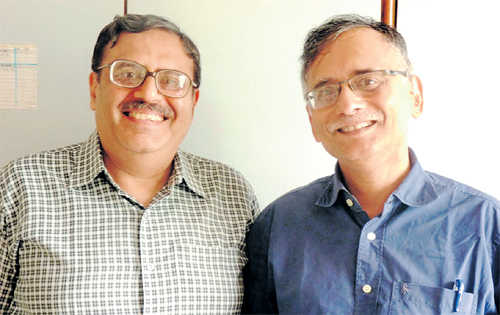The commoditization of health services is a disease and its treatment is only surgical, say Dr Arun Gadre and Dr Abhay Shukla, authors of ‘Dissenting Diagnosis.’It is a book that jolts the medical professionals in India with whistle blowing accounts of 78 doctors. “It’s a beginning for an awakening; to create social pressure for policy change,” say the doctors.
In the US, websites like ProPublica/Dollars for Docs offer a detailed account of payments made by major pharmaceutical and medical device companies to doctors, hospitals, and other health professionals for promotional talks, research, and consulting under a legal settlement taken in public interest. In India, the murkiness of healthcare remains a blind man’s elephant in the absence of a legal framework.
The irony is most doctors are ethical, or at least wish to be, is established by SATHI, the NGO, that compiled the interviews for the book.
Dr Gadre, a gynaecologist, ran a small nursing home in rural area of Nashik, Maharashtra. After initial years, doctors like him were face-to-face with commercialisation, liberalisation and globalisation of medical services. Patients would come with stories of being fleeced by big hospitals and would approach doctors like him with suspicion. “This was affecting us,” say Gadre and Shukla.
To nail the culprits, Gadre started a sample study of 20 doctors with a questionnaire; transcribed and analysed the data. The honesty of the doctors surprised him. Then, with the support of SATHI, the scope of the study was turned pan-Indian. “Most doctors agreed to give their name, this surprised us.” The whistle blowers include both prominent and lesser-known medics from Maharashtra, Chhattisgarh, Bengaluru, Delhi, Kolkata and Chennai, mostly from private sector.
The rot began to set in when the Government encouraged privatisation of medical services, turning it into an industry. “In this industry people are raw material to be turned into products by doctors who feel no better than bonded labourers,” says Dr Gadre. In the book, a cardiologist from a megacity mentions a young colleague from a corporate hospital who was told that unless he converted 40 per cent of his out patients into those undergoing surgical procedures like angioplasty, he would be kicked out.
“Under cashless medical treatment scheme of the Punjab government, PGEPHIS (Punjab government employees and pensioners health insurance scheme), the government provides higher rates to corporate hospitals. Small set-ups get less despite the fact that there was no such provision in the gazette notification,” says a medical practitioner. “For all billing and tax purposes medical services are a commercial venture. In the name of ethics/ code of conduct doctors are not allowed to advertise the facilities in their hospitals. Clause 6.1 in the Code of Medical Ethics- 2002 notified under the IMC Act 1965, needs a re-look because it places individual doctors at a distinct disadvantage,” says Dr Amandeep Aggarwal, IMA, Punjab.
These observations support the findings of ‘Dissenting Diagnosis’ that offers solutions in the second half of the book on how ordinary citizens need to get organised for legal and operational protection of patients’ rights.
Unlock Exclusive Insights with The Tribune Premium
Take your experience further with Premium access.
Thought-provoking Opinions, Expert Analysis, In-depth Insights and other Member Only Benefits
Already a Member? Sign In Now










